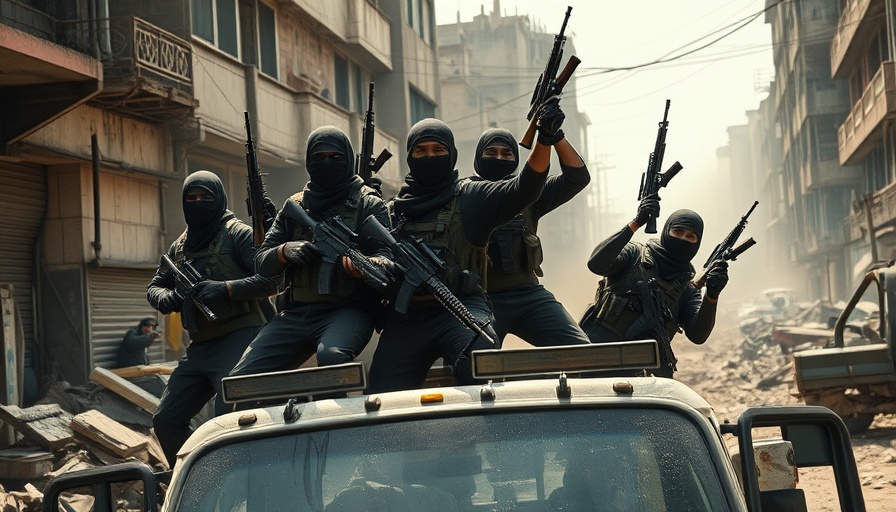
Understanding the Complexity of Israel's Military Engagements
The ongoing struggle between the Israeli Defense Forces (IDF) and groups like Hamas raises important questions about military strategy and political objectives. While the IDF has successfully engaged Hezbollah in the past, the dynamics in Gaza present a different set of challenges, influenced by geography, political aims, and social context. For many believers and advocates for peace, understanding these nuances is crucial to addressing the humanitarian needs arising from such conflicts.
The Geopolitical Landscape: A Tale of Two Fronts
One of the primary differences between the IDF's encounters with Hezbollah and its current situation with Hamas lies in the geography of the theater of operations. Northern Israel shares borders with Lebanon, where Hezbollah operates within a more defined territory. In contrast, Gaza's complex urban landscape makes it difficult for military forces to effectively neutralize threats without substantial collateral damage. This complexity is compounded by the humanitarian crisis in Gaza, raising moral questions for mission-minded Christians who seek a balanced view of justice and compassion.
The Hostage Crisis: A Humanitarian Dilemma
The issue of hostages adds another layer of ethical complexity to the situation in Gaza. As reports on hostage negotiations continue to surface, the emotional toll on families and communities is palpable. Believers engaged in advocacy work for the persecuted church and humanitarian efforts must recognize the broader implications of such crises. Understanding the human stories behind the headlines helps in articulating compassion-driven responses that resonate with our faith commitments.
Political Motivations: The Quest for Peace
Israel’s political motivations also play a central role in determining military strategies. A desire for peace amidst an ongoing conflict and aspirations to ensure national security must coexist, but often result in complex decisions that impact civilian populations. For Christians focused on social justice, recognizing the intricate relationship between state policy and humanitarian outcomes can be a motivating factor in advocacy efforts and interfaith dialogue.
Future Predictions: Implications for Regional Stability
As we consider the outcomes of these conflicts, understanding potential future trends in the region influences how believers can engage with the topic. The power struggles emerging in a post-Hamas Gaza could lead to a variety of outcomes, each presenting its own set of challenges and opportunities for peace-building. Mission-minded individuals should reflect on how they can proactively contribute to a narrative that supports peaceful resolutions and humanitarian needs.
Making Faith-Based Decisions
The question of why the IDF has not achieved victory in Gaza becomes not just a military question but a moral one as well. Believers are encouraged to ponder how their faith informs their view of justice, resilience, and hope in times of conflict. By doing so, they foster a comprehensive understanding of the complexities of this conflict and how their faith can inspire action toward support and healing in the affected communities.
Actionable Insights: Engaging with the Crisis
For Christians interested in engaging with the ramifications of the ongoing conflict, it’s beneficial to explore avenues of connection with both the Israeli and Palestinian narratives. Supporting humanitarian programs, engaging in interfaith dialogues, and advocating for peaceful solutions can create constructive engagement that aligns with one’s faith. It’s these actions that allow for a compassionate outreach that transcends political divisions.
 Add Row
Add Row  Add
Add 








 Add Row
Add Row  Add
Add 

Write A Comment